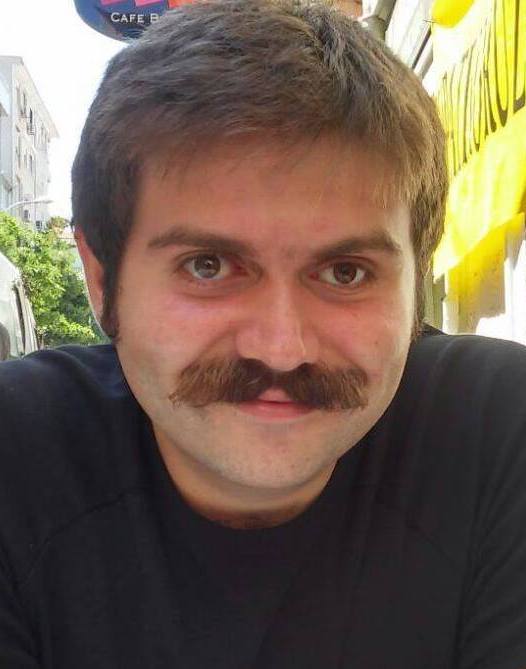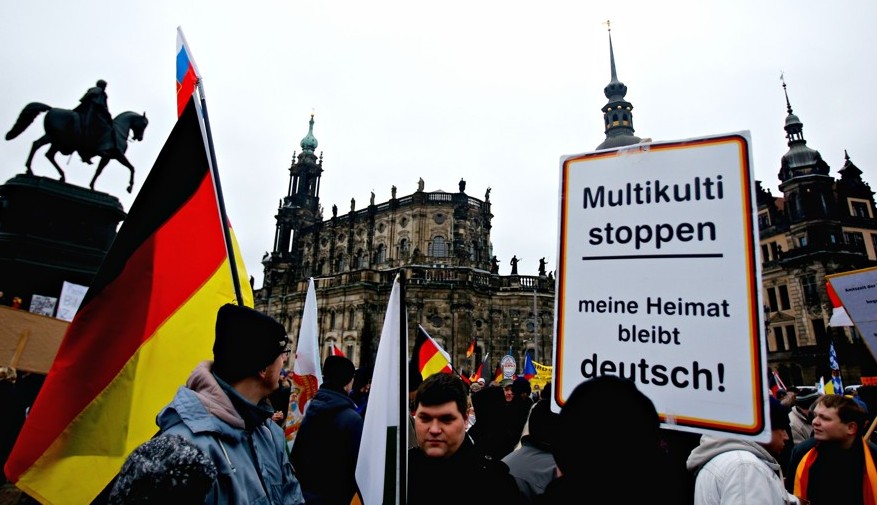Homeland Insecurity




The deal between the European Union and Turkey to address the migrant crisis in Greece might resettle some Syrian refugees, but it’s no bargain, say global studies scholars at UC Santa Barbara. The agreement, they contend, is largely an unworkable violation of international law that glosses over the realities of geopolitics and fuels xenophobia.
“Turkey is very worried about what’s happening in Syria and very worried about what’s happening in Russia,” said Paul Amar, associate professor of global studies and director of the department’s Ph.D. and master’s programs. “Turkey is reasserting itself in its NATO role as a partner for the EU even if it means encouraging the EU to dismantle its own human-rights principles. Quantitatively, these displaced populations do not constitute an unmanageable wave of forced migration compared with the post-World War II era or the age of decolonization. Refugee flows from the Middle East are not forcing this political shift. It’s neonationalists in Turkey and the EU that are seizing on this problem and making it into something absolutely catastrophic.”
Intended to deter further migration, the agreement is a one-for-one deal: For every Syrian the EU sends back to Turkey, a Syrian in Turkey will be resettled in Europe. It applies to Syrians arriving in Greece after March 20. Nearly 60,000 refugees currently languish in Greece, where more than 500,000 people landed in the country in 2015. The deal caps the number of Syrians who can go to Europe from Turkey at 72,000. Roughly 200 have been sent back to Turkey.
One of the key problems with the agreement, the global studies’ scholars said, is that it violates the legal principle of non-refoulement, which forbids the return of refugees to their country of origin or any other where they might be subject to persecution.
“Looking at this issue from a legalistic perspective, it’s a violation of international law on refugees,” noted Sarp Kurgan, a global studies Ph.D. candidate who is a native of Turkey. “According to the law, once a refugee goes to a country, then that country cannot force him or her to go back where he or she came from. But the EU and Turkey deal basically breaks that law. And apparently the [UN High Commissioner for Refugees] can actually do nothing about it.”
For much of Europe, which has been unsettled by terrorist attacks in Paris and Brussels, the refugee situation has morphed into a political crisis as well, the researchers note. A surge in xenophobia has been accompanied by the rise of anti-immigrant parties in multiple countries. In Germany, the far-right Alternative for Germany won as much as 24 percent of the vote in some states in recent elections, said Katja Siepmann, a global studies Ph.D. candidate and German native.
“They are clearly saying Islam — not Islamism — has no place in Germany. In the view of the party leaders, Islam is not a religion, but a political ideology that does not respect the separation of church and state, and therefore would contradict Basic German Law,” Siepmann observed. “They want to forbid minarets and hijabs. This right-wing populist party did not exist just a couple of years ago. They are distorting the situation and are capitalizing on the fear of the people. They exaggerate and fabricate a moral panic and a discourse of ‘clash of civilizations.’ This fundamental clash doesn’t exist, but they portray a whole group of people as being all the same, all being terrorists or rapists.”
While the influx of Muslim refugees from Syria, Iraq, Afghanistan, Pakistan and northern Africa has been pitched as an existential crisis for Europe, Kurgan observed, the numbers actually pale in a historical context. He noted that the number of refugees that made it to Europe make up around 0.2 percent of Europe’s population. “It’s basically a human-made crisis, supported by media, supported by the political parties,” he said.
It’s also important to note that migrant crises and xenophobia are not new in Europe, Kurgan said. “Similar responses against Islam or immigrants were seen during another immigrant influx during the 1950s and 1960s as several European countries, most notably Germany, attempted to import labor forces from neighboring regions, most notably Turkey to respond to the labor insufficiency following the WWII,” he explained. “Even though this was official policy by Germany to respond to an important issue in German political economy, the influx of immigrants was received with high levels of xenophobia. During that period, too, attacks or arsons against immigrant households and neighborhoods by extreme right wing groups were a common phenomenon, although it should be emphasized that it was not an official policy of Germany.”
Although the fear of terrorism has dominated the conversation about refugees, Amar, Siepmann and Kurgan said the migrant crisis is more rooted in economics than in war and politics. High unemployment and the imposition of austerity have squeezed the poorer members of the EU and triggered a nationalism that simmers beneath the surface, they contend.
“Economic insecurity is underlying all of these problems, both in the richer and poorer countries,” Siepmann said. “You have almost 50 percent of youth unemployment in the southern European nations. They have not really recovered from the financial and economic crisis, so economic insecurity is fueling most of these anti-immigration sentiments. I think if Europe were in a better economic moment, maybe the influx of refugees would not cause so much emotion.”
Amar, who has extensively studied the political and economic relationships between Europe and the Middle East, said there is a direct link between austerity and nationalism. He points to the late 1990s and the early 2000s, when the EU model of transnational cooperation and inclusion seemed poised to spread through Turkey and into northern Africa. “Social democracy logics still countered prerogatives of austerity,” he noted. “The EU vision aimed to spread the wealth, focusing on economic equalization and between rich and poor and multicultural inclusion from the North Sea to the Mediterranean.” Those days are over.
“It’s not the war in Syria that drives this ‘refugee crisis’ in Europe,” Amar continued. “This panic is the fruit of a long-term transformation in the European Union culminating in the revival of a very crude kind of austerity politics, which has been abandoned in many other regions of the world that adopted the Beijing Consensus or versions of Keynesian developmentalism. Accompanying the EU’s resurrection of economic ideology is the revival of an old political ideology, a very narrow mid-20th century breed of nationalism, which prevents Europe from offering a more open model that could embrace the whole Mediterranean, or from establishing legitimacy as an interested player or role model in the Middle East, or even from resolving its own internal problems in ways that promote solidarity.”
Looking ahead, it’s not clear the deal is workable, the researchers said. Refugees will try to get to Europe no matter the barriers. Making Greece an unattractive destination will only push migrants into more dangerous routes, they agreed.
“As the deal unfolds we’ll see if it’s even feasible on a grand scale,” said Clint Betkey, a global studies master’s candidate whose research focuses on refugees. “Right now they’ve only sent back 200 people so far. Whether or not, when the summer comes around, that’s actually going to stop people from coming anyway or are they going to keep coming in the same numbers. We have to see how it plays out over time.”





